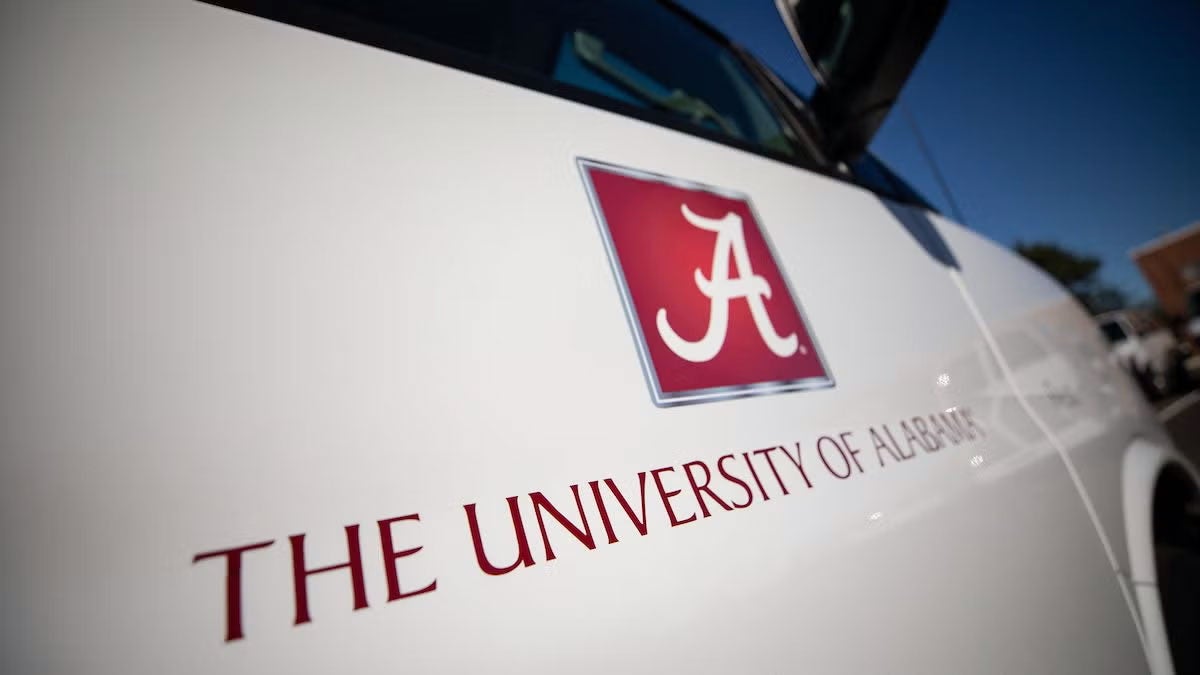July 26, 2022
An automated vehicle pioneer and engineering professor at The University of Alabama will be the new chief mobility research and development officer for the Alabama Transportation Institute.
Dr. Bharat Balasubramanian, professor in the UA College of Engineering and executive director of the Center for Advanced Vehicle Technologies, will take on the additional responsibility of creating and implementing a vision for connected, automated and electric mobility research and elevating the profile of ATI both locally and globally. The appointment begins Aug. 1.
“UA and its partners have articulated our vision for the ‘New Mobility and Power Economy’, which aligns multiple components of academic programs, R&D, industry partnership, and workforce and economic development,” said Dr. Russell J. Mumper, UA vice president for research and economic development. “ATI and UA are very fortunate to have Dr. Balasubramanian to serve as its chief mobility R&D officer. Dr. Balasubramanian is a visionary leader in all of these components, and UA and the state of Alabama will benefit greatly.”
With expertise in the fields of electric and automated vehicles and the requisite infrastructure, Balasubramanian, known on campus as Dr. B, brings nearly 40 years of experience in research and development with Daimler AG in the Mercedes-Benz Cars Division. After retiring from Daimler in 2012 as vice president of group research and advanced engineering, Balasubramanian accepted an appointment as professor in both mechanical engineering and electrical and computer engineering at UA.
Over the past decade at UA, he has been integral in improving automotive engineering education and research while helping to form partnerships between UA and the state’s automotive industry. He started and leads the Two Steps Ahead: International German Student Exchange Program designed for a select group of students to gain experience with multi-national companies in automotive engineering while learning German.
His leadership of CAVT has helped the center to design and test the transportation technology that will drive the newly emerging economies of mobility and power. In the past five years Dr. B and his team have secured nearly $20 Million in grant funding from federal agencies, DoD, DoT and DoE. In these multi-disciplinary efforts, the projects typically involve between 4 to 12 faculty members from various departments and colleges across the university.
“The College of Engineering is excited that one of our own will be serving in a role that unites faculty from across our entire campus to address the technical challenges as our nation evolves in our approach to mobility through connectivity and automation. Balasubramanian has a unique background and skill set that makes him a natural fit for this role. His technical knowledge and ability to unite faculty with a common purpose will be essential to his mission,” said Dr. Tim Haskew, associate dean for research for the College of Engineering.
Founded in 2017, ATI connects researchers with industry and governmental leaders to provide innovative, cost-effective solutions to build and maintain safe and smart transportation infrastructure for the future. CAVT is one of nine centers engaged in active partnership and research with ATI.
“The Alabama Transportation Institute has a broad vision for mobility that includes electric, automated, and connected vehicles, and bringing these technologies together in a transformative way. Dr. Balasubramanian uniquely brings a broad, world-class portfolio of experience in all of these areas, and he will provide strong leadership in bringing them together to make UA a worldwide leader in mobility,” said Dr. Allen Parrish, ATI executive director.
A native of India, Balasubramanian graduated with highest honors in mechanical engineering from the Indian Institute of Technology Bombay, where he was later awarded the Distinguished Alumnus Award in 1997. Upon graduation, he moved to Germany to further his studies at the Karlsruhe Institute of Technology, earning a master’s degree in mechanical engineering in 1977, followed by a doctoral degree in 1983.
His passion for automotive design launched his career with Daimler AG, spanning 38 years, and culminating as vice president of R&D, the first non-German to hold the position in the history of the company. While at the company, he was the initiator and champion of automated driving, connected vehicles, battery electric cars and carbon fiber reinforced polymer light weighting.
